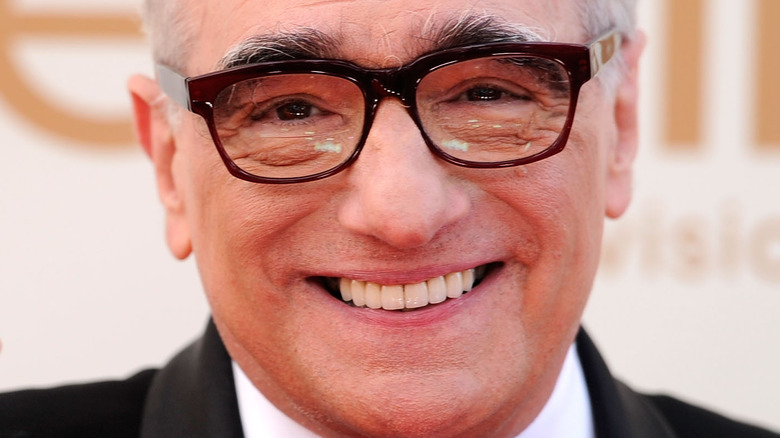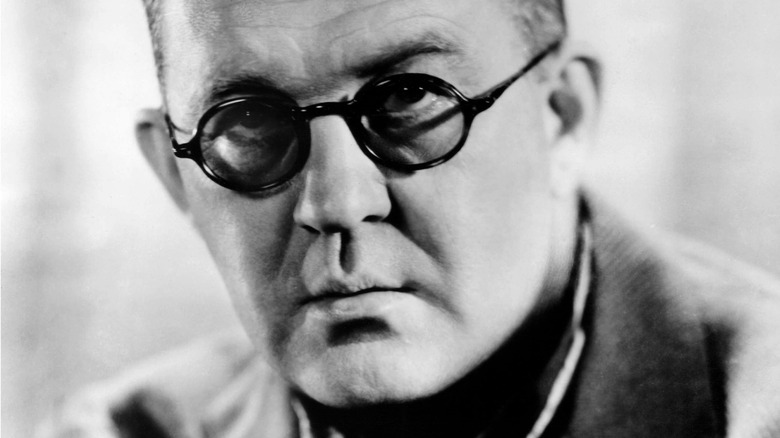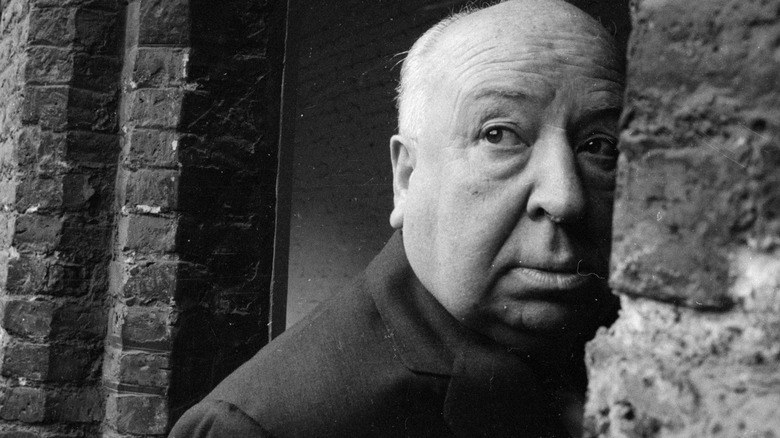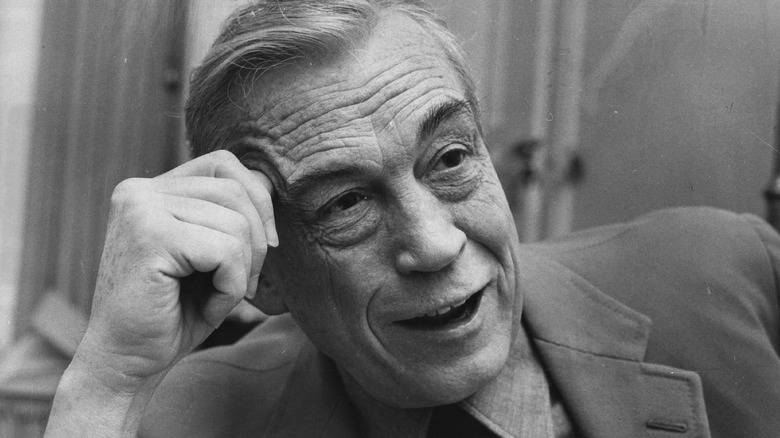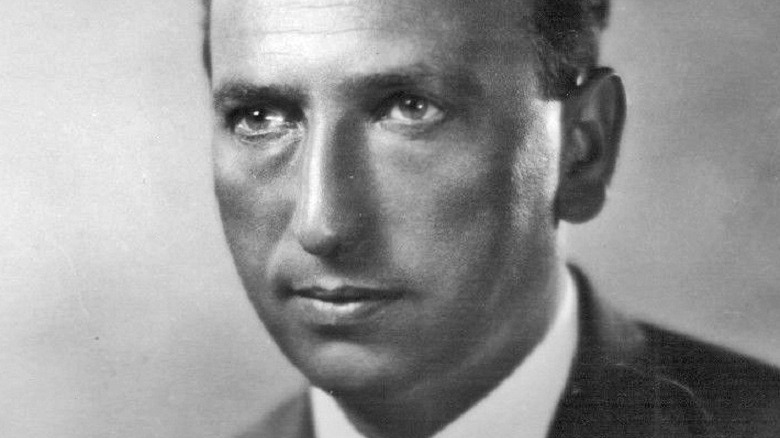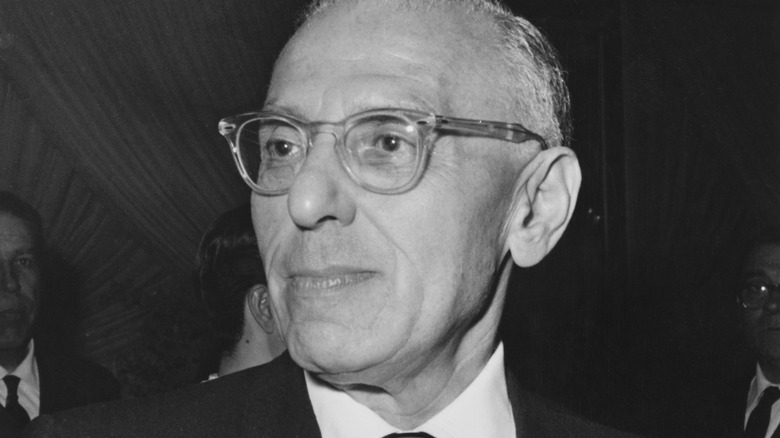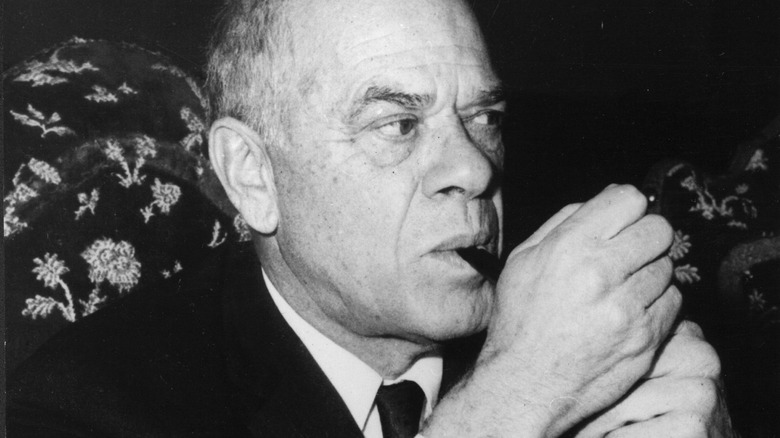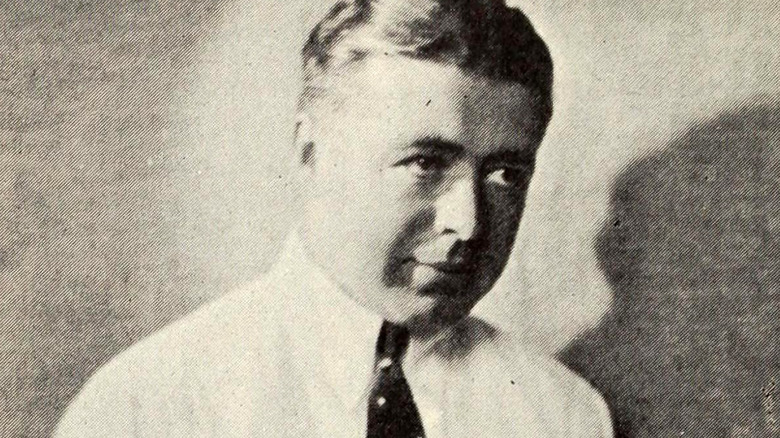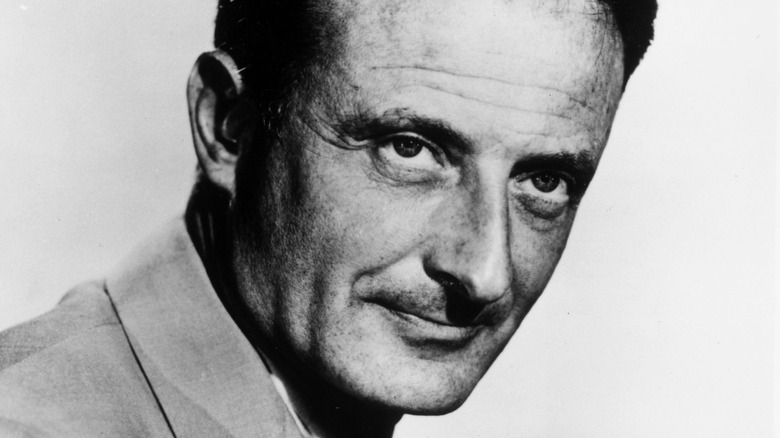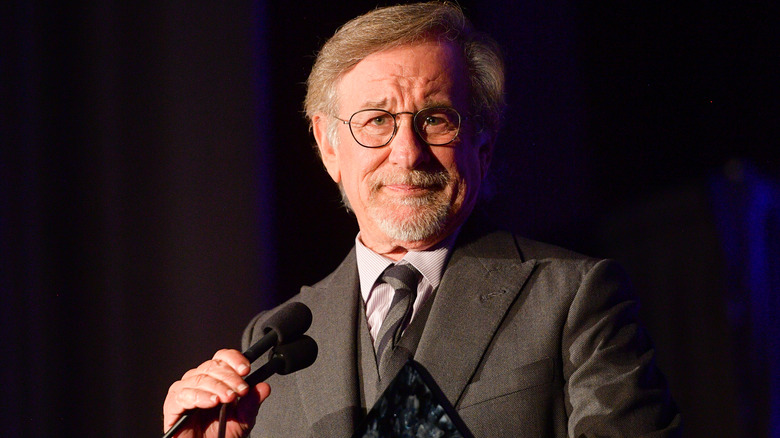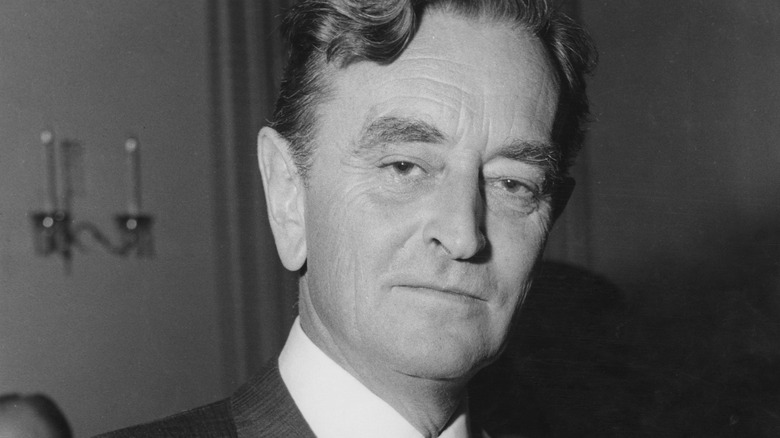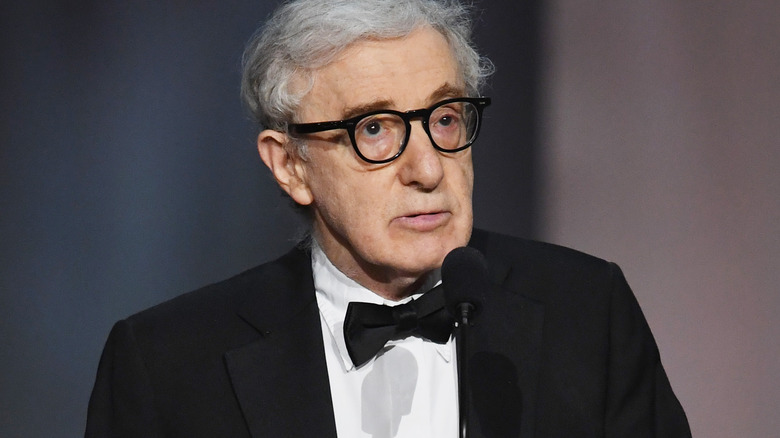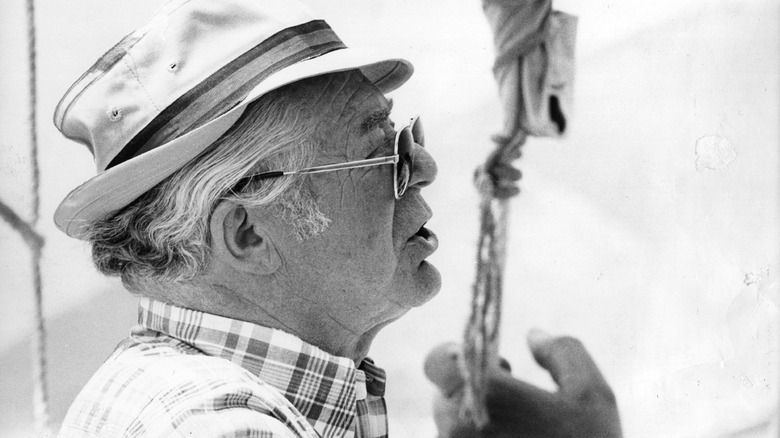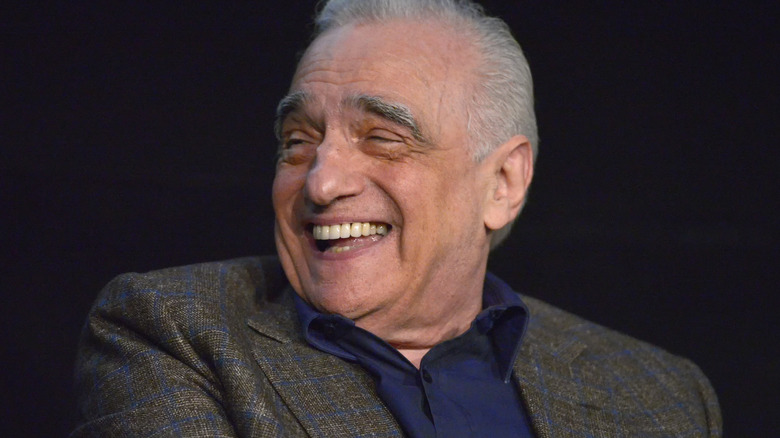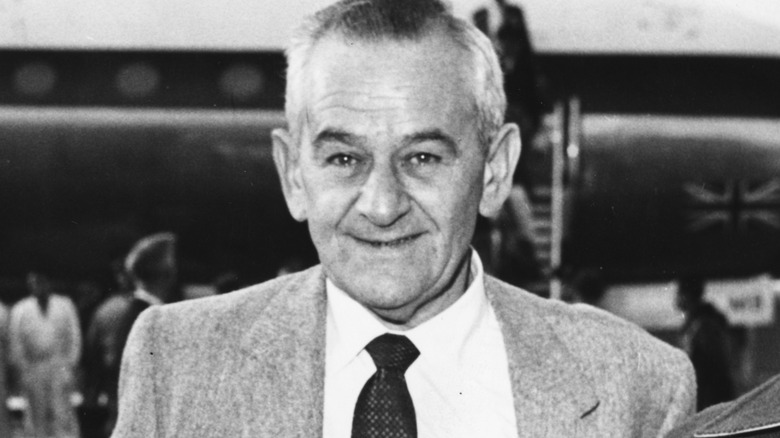These Are The Most Oscar-Nominated Directors In History
The Academy Awards have been giving out trophies for over 90 years, and while they've definitely handed out a lot of Oscars, they haven't always given them to the right people. Having said that, the Oscars have definitely nominated a ton of impressive and worthy artists, and that's especially true for the Best Director category, which boasts over 450 nominees.
Of course, 450+ nominations doesn't mean 450+ individual directors. Quite a few filmmakers have snagged more than one Oscar nod over the years. Needless to say, these particular directors are some of cinema's finest, not only earning multiple accolades from their peers but becoming the most influential filmmakers of all time. Some helped redefine what certain genres were capable of, others rebuilt the language of film from the ground up, and all of them made some of the greatest movies to ever play on the big screen.
Whatever the reason for their success, these filmmakers wound up becoming staples at the Academy Awards. But how many nominations have they racked up over the years? Well, from old-timey filmmakers to modern-day legends, here are the most Oscar-nominated directors in history.
John Ford is the winningest director in Oscar history
Western extraordinaire John Ford won the Best Director Oscar the first time he was up to bat for his 1935 movie "The Informer." Nobody could've known it at the time, but this would be the first of four wins for Ford in this category. Ford also wound up taking home gold for classics like "The Grapes of Wrath," "How Green Was My Valley," and "The Quiet Man." The only time Ford was ever nominated for a Best Director Oscar and didn't win was for his 1939 feature "Stagecoach."
Granted, Ford's collective five nominations don't even make him one of the five most nominated directors in the history of the Academy Awards. However, he does have a record to his name in this category as his four statuettes make him the director with the most Oscar wins. Standing above other multiple winners in this category like Clint Eastwood and William Wyler, Ford could never have imagined his initial win for "The Informer" was the start of a historic Oscar streak.
Alfred Hitchcock never won an Oscar for directing
It's an indisputable fact that Alfred Hitchcock is one of the most famous directors to ever exist. His silhouette alone is still recognizable to viewers of all ages, and his works transformed the horror and thriller genres forever. Despite these accomplishments, Alfred Hitchcock was never truly recognized by the Academy for his directorial work. Though his five Best Director nominations still make him one of the most recognized filmmakers, it's certainly not as many as you'd expect for a director of his stature. On top of that, he also never scored a win in this category.
Hitchcock's first Oscar nomination came for his 1940 film "Rebecca," which would end up becoming his one feature to score a Best Picture win. From there, Hitchcock nabbed an additional four Best Director nods, though not for the films you'd expect. Some of his most influential films, like "Vertigo" and "North by Northwest", didn't make it into this category. Instead, more obscure Hitchcock works like "Spellbound" and "Lifeboat" got nominated. Hitchcock's final Best Director nomination, though, did intersect with one of his most famous titles — "Psycho." Though he may not be as much of a presence here as you might expect, Hitchcock's five Best Director Oscar nominations still speak to his tremendous influence in the world of film.
John Huston was an Academy Awards favorite
Over the years, the incredibly versatile John Huston scored Oscar nominations in a several different categories, ranging from screenplay nods to even Best Supporting Actor nominations. But when it comes to the Best Director category, Huston was nominated on five separate occasions, starting with his 1949 movie "The Treasure of the Sierra Madre." Now widely regarded as one of Huston's best works and one of the best action movies ever made, it was a fitting start to his Oscar run, particularly since he won the award for Best Director!
From there, Huston scored the impressive hat trick of snagging a Best Director nomination for three consecutive years, for "The Asphalt Jungle," "The African Queen," and "Moulin Rouge." After that, Huston's presence at the Oscars was largely relegated to nominations recognizing his achievements in writing and acting. However, this Hollywood legend managed to break into the Best Director category one last time in 1986 with the gangster flick "Prizzi's Honor," nearly 40 years after his first Best Director nomination. It was an outstanding achievement that cemented Huston's legacy as a filmmaker.
Here's looking at you, Michael Curtiz
Michael Curtiz might not be a household name, but his films are certainly as iconic as they come. The man responsible for movies like "Yankee Doodle Dandy" and "The Adventures of Robin Hood" left an indisputably large mark on the film industry. It's only fitting, then, that he managed to snag five separate Best Director Oscar nominations in his career. All these nods were acquired over the course of eight years, a testament to how influential his works were in the 1930s and 1940s.
First getting nominated for his 1935 pirate flick "Captain Blood", Curtiz proceeded to garner three subsequent Oscar nominations before finally winning for his fifth nomination, "Casablanca." Sometimes, filmmakers win that Best Director trophy for lesser works, but in the case of Curtiz, there couldn't have been a better film for him to finally score Oscar glory with. After all, "Casablanca" is one of the all-time perfect films. And after this Oscar victory, Curtiz would go on to direct major films for nearly two decades, though none of his subsequent efforts broke into the Best Director category. When you win that award for helming a movie like "Casablanca," though, who needs a repeat trip up to the Oscars podium?
George Cukor brought us some truly beloved films
It would take a long time to properly list off all the qualities that have made George Cukor famous. His collaborations with Katharine Hepburn, for one thing, are rightfully iconic, as is his larger influence on American comedy cinema. (He also directed the thriller "Gaslight," which helped create the phrase "gaslighting.") His massive influence on film is reflected in how prominent he was at the Academy Awards, where he managed to get nominated for Best Director on five occasions.
While some of his most lastingly famous titles like "Holiday" and "The Women" failed to secure Best Director nominations, that doesn't mean his library of Best Director nods are devoid of noteworthy titles. Among the movies he scored nominations for include "The Philadelphia Story" and "Born Yesterday." Cukor finally managed to grab a win in this category with his 1964 Best Picture winner, the charming musical "My Fair Lady."
It's a wonderful life, and Frank Capra is a wonderful director
It can be easy to take Frank Capra for granted. Some even distil his works down to just a bunch of sentimental schmaltz with no heft. But watching Capra's films makes it apparent that this perception is wildly inaccurate. Though Capra's movies have plenty of silly scenes and tearjerker moments, features like "Mr. Smith Goes to Washington" don't hold out on the darkness, making the sweeping moments of triumph feel earned.
Given both the tonal complexity in his filmography and how many iconic movies he helmed, it should be no surprise that Capra managed to grab six Best Director Oscar nominations during his career. Impressively, Capra managed to win for half of the movies he was nominated for, making him one of only three directors in history to win three or more Best Director statues. His last Best Director win was for the movie "You Can't Take It With You," but he managed to score two additional Best Director nominations after that, including one for "It's a Wonderful Life." Attaboy, Capra.
Clarence Brown — always the bridesmaid
At the 3rd Academy Awards, a peculiar event occurred. Clarence Brown became only the second filmmaker ever, following Frank Lloyd, to score multiple Best Director nominations at a single Oscars ceremony. Brown achieved this with the films "Anna Christie" and "Romance." This notable feat wouldn't be the last time Brown garnered sizeable attention from the Academy. This pair of nods kicked off his notable presence in the Best Director category that would end up yielding six nominations.
Brown continued to get nominated in this category up until 1947, when he scored his final Best Director nomination for the film "The Yearling." The only downside to his impressive streak of nominations is that he currently resides as the most-nominated director to have never actually won an Oscar. Still, his constant presence at the Academy Awards throughout the 1930s and 1940s was remarkable, as seen by how, at the time of his death in 1987, only two other filmmakers had managed to either match or surpass his nominations in the Best Director category.
Fred Zinnemann tackled some serious topics
Fred Zinnemann wasn't afraid to make movies that touched on provocative real-world issues. Just look at his 1952 film "High Noon," a Western that dared to confront McCarthyism as it was happening. Those bold tendencies led to Zinnemann cultivating a lasting reputation as a filmmaker of note. This perception has only been reinforced by his seven nominations in the Best Director category at various Academy Award ceremonies.
Among those seven nods, Zinnemann scored two wins in the Best Director category. The first was for his World War II movie "From Here to Eternity" while his second came more than a decade later with the Thomas More biopic "A Man For All Seasons." Other films he was nominated for include 1949's "The Search" and 1961's "The Sundowners." Zinnemann would manage to appear in this category one final time at the tail end of the 1970s when he was given a Best Director nomination for 1978's "Julia." This film was a Jane Fonda drama about a woman who fought against the Nazis years before World War II even started. Its plotline made "Julia" the perfect final Best Director nod for Zinnemann given how it summed up his gift for tackling extremely bold and deeply human stories.
Steven Spielberg made up for losing out on Jaws
There's a famous video depicting Steven Spielberg and his chums watching the Oscar nominations for the 48th Academy Awards being announced live. Expecting his breakout film, "Jaws," to score several high-profile Oscar nods, Spielberg is dismayed when he's snubbed in the Best Director category. "They gave it to Fellini!" he remarks. But while Spielberg missed out on a nomination on that fateful day, he currently boasts a whopping seven Best Director nominations.
His first would come for "Close Encounters of the Third Kind" — just two years after getting snubbed for "Jaws" — followed by nominations for "Raiders of the Lost Ark" and "E.T. the Extra-Terrestrial." His fourth and fifth times nominated — "Schindler's List" and "Saving Private Ryan," respectively — would finally earn Spielberg his two Best Director Oscar statues. After that, the man still wasn't done getting Best Director nods, as "Munich" and "Lincoln" each garnered a Best Director nomination, bringing his total to seven. Sure, Spielberg missed out on getting a nomination for "Jaws" but the years since have seen him become a perennial favorite of the Best Director category.
David Lean had an epic run
David Lean is so associated with extravagant, large-scale movies that it's rare to find a filmmaker embarking on a lavish film who doesn't mention any kind of influence from Lean's works. The man behind "Lawrence of Arabia" helped to define what big-budget prestige filmmaking looked like, and such an accomplishment made him cozy with the Academy Awards. Over his various decades of delivering spectacle that needed to be seen on the big screen, Lean amassed seven Oscar nominations for Best Director.
His first nomination for this category was for "Brief Encounter," a more intimate affair than later Lean works but just as captivating. Two more nominations later, Lean would score his first of two Best Director wins with "The Bridge on the River Kwai," with the second coming through his most famous work, "Lawrence of Arabia." A sprawling epic that never forgets about the beating heart of the real-world person it's chronicling, "Lawrence of Arabia" was a crowning triumph worthy of Oscar glory. Lean would subsequently garner two further Best Director nods, one of which came for the snowy epic "Doctor Zhivago." Throughout his various works nominated for Best Director, one gets a clear view of why Lean came to define large-scale filmmaking.
Woody Allen's reputation has taken a major blow since his Oscar heyday
There was no one quite like Woody Allen in American cinema when he started regularly directing in the early 1970s. While many filmmakers used the creative freedom regarding sexual material from the loss of the Hays Code to deliver empty exploitation, Allen used these new tools to paint realistic portraits of human awkwardness. In this new world of Hollywood, Allen could deliver films so unique and in touch with reality that seven of them have scored seven Best Director nominations at the Academy Awards.
Allen earned his first Best Director nomination for the comedy "Annie Hall," a nod that would also end up serving as his first Best Director Oscar win. Since then, Allen's wins have largely been limited to the Best Original Screenplay category, although titles like "Hannah and Her Sisters" and "Midnight in Paris" kept the filmmaker a constant presence in the Best Director field. He even scored a nomination as recently as 2014 thanks to the Cate Blanchett-starring "Blue Jasmine."
Of course, allegations about Allen's behavior make his work much more difficult to watch in the modern world. But looking at his Best Director nominations, it is still easy to understand why Allen was seen as an Oscar-worthy bolt out of the blue in 1970s cinema.
Billy Wilder was a genre gamechanger
A whole slew of genres owe a great deal to Billy Wilder. This versatile Hollywood filmmaker redefined film noir with "Double Indemnity," while "The Apartment" broke all the rules for what kind of storytelling material mainstream romantic-comedies could cover. Such accomplishments have made Wilder the kind of filmmaker with an enormous creative legacy, one punctuated by his impressive eight Best Director Oscar nominations.
His first Best Director nod came for "Double Indemnity," and his second Best Director nomination — for the alcohol addiction drama "The Lost Weekend" — scored him his first victory in the category. From there, Wilder was fixture of the Best Director category, and he managed to score further nominations through titles like "Stalag 17," "Sunset Blvd." and "Some Like it Hot." His second win in this category would come from "The Apartment," the rare comedy to win Best Director ... and Best Picture!
If you or anyone you know is struggling with addiction issues, help is available. Visit the Substance Abuse and Mental Health Services Administration website or contact SAMHSA's National Helpline at 1-800-662-HELP (4357).
Martin Scorsese is a titan in both Hollywood and the Academy Awards
Just try picturing the world of filmmaking without Martin Scorsese. A world without "you talkin' to me?" A world without movies like "The Last Temptation of Christ." A world without the Film Foundation, a group founded by Scorsese to preserve movies from all around the world. It's hard to even comprehend a modern cinema landscape devoid of Scorsese. His profound influence on this artform makes it only fitting that he's one of the filmmakers who's scored the most Best Director Oscar nominations, with a whopping nine nods.
Scorsese kicked off his presence in this category later than one might expect. His seminal 1970s movies like "Taxi Driver" and "Alice Doesn't Live Here Anymore" failed to garner Best Director nominations, even though he was getting nominated at other award ceremonies like the BAFTAs. However, the Oscars finally gave Scorsese his first Best Director nomination for "Raging Bull," and from there, Scorsese scored subsequent nods for films like "The Last Temptation of Christ," "Goodfellas," "Gangs of New York," and "The Aviator."
Nearly four decades after he first started directing feature-length movies, Scorsese finally scored an Oscar win for "The Departed." Since then, he's found his way into this category three more times for "Hugo," "The Wolf of Wall Street," and "The Irishman." Appropriately, Scorsese's significant shadow over the film industry has been accompanied by a massive presence at the Academy Awards.
William Wyler is the most Oscar-nominated director in history
Among his many other accomplishments as a director, William Wyler made two of the most insightful movies — "Mrs. Miniver" and "The Best Years of Our Lives" — about ordinary people navigating World War II. It's a fitting achievement for a filmmaker who, as chronicled in the Mark Harris book "Five Came Back," was one of five famous American directors to actually head overseas during the war and film footage of the conflict. His personal experiences here informed the deeply human qualities evident in "Miniver" and "Years," making it unsurprising that these are two of the three movies that bestowed Wyler with a Best Director Oscar win.
Wyler's third Best Director victory would come with 1959' sword-and-sandal epic "Ben-Hur," but his experiences in this category aren't just limited to wins. Wyler also managed to score a further nine nominations in the Best Director sector at the Academy Awards, making him the most recognized filmmaker in this category. It's a towering achievement but one fitting for a man who used cinema to help people understand the human consequences of real-world horrors.
